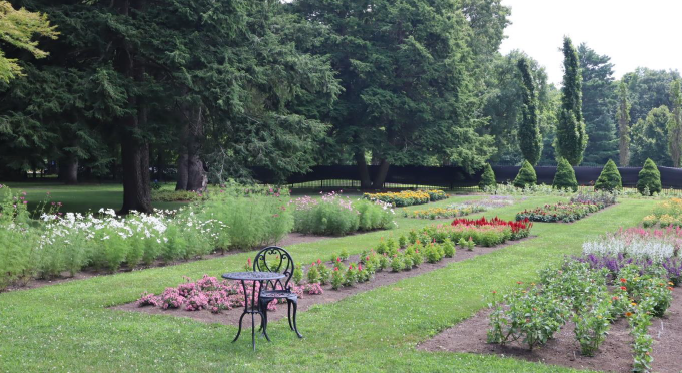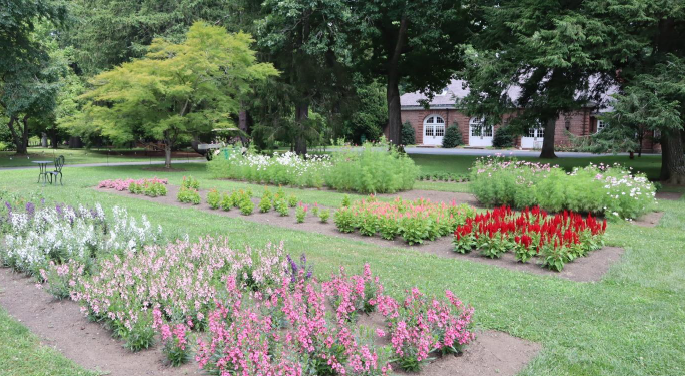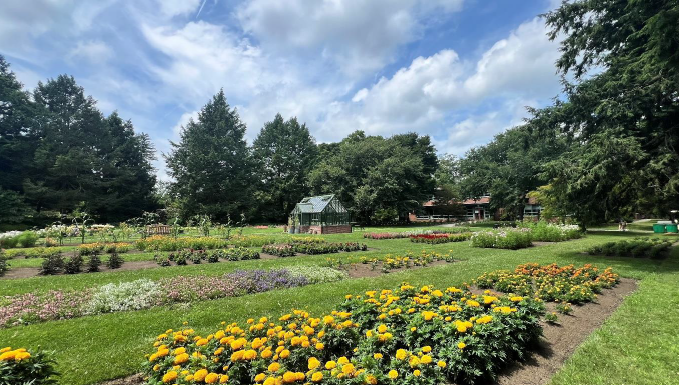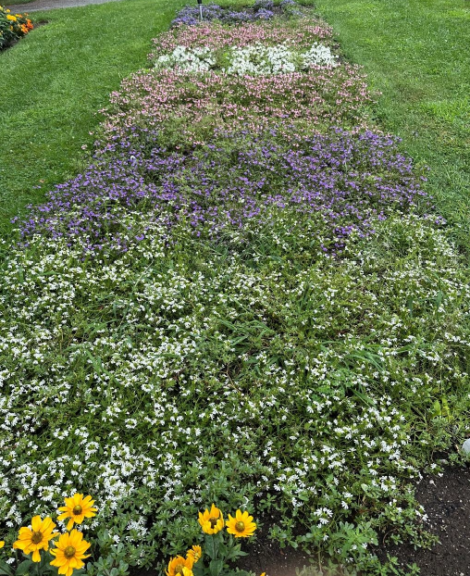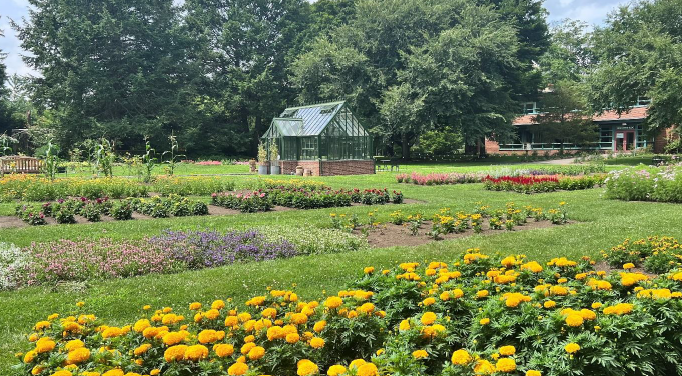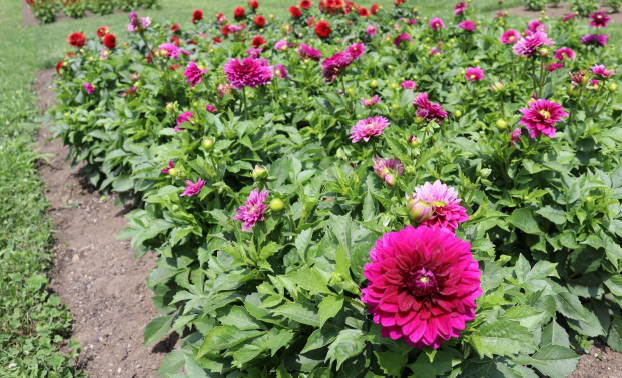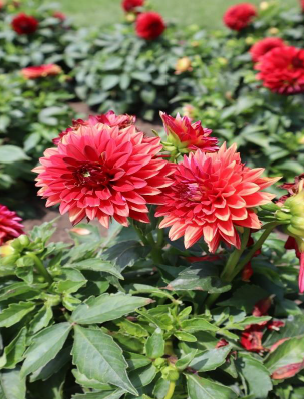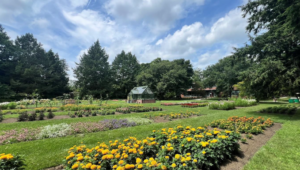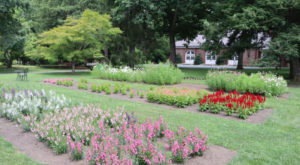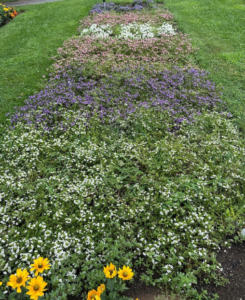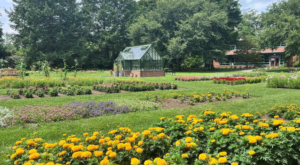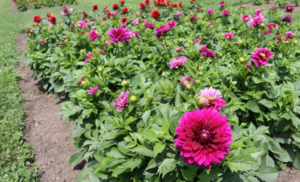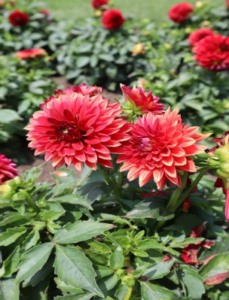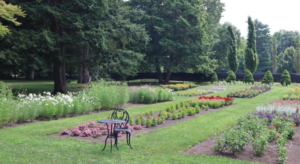Note: Information for this trials report was provided by Venkatesh Babu Veerisetty, Horticulturist at the Massachusetts Horticultural Society.
At the Massachusetts Horticultural Society, our annual field trials play a vital role in showcasing new plant varieties and providing valuable data on their performance under local growing conditions. This year, we proudly continued our collaborations with Proven Winners and All-America Selections (AAS), testing a range of top-tier ornamental and edible plant varieties. Additionally, we partnered with Harmony Harvest Farm, where we trialed select chrysanthemum varieties, further expanding the diversity of our trials. These partnerships allow us to evaluate both well-established and emerging plants, offering insights not only for our own displays but also for gardeners and horticulturists throughout the region.
The 2024 trials included an exciting array of ornamental plants from the Proven Winners series, AAS varieties, and new edible crops, giving us an opportunity to assess their performance under the variable climate of New England. The outcomes of these trials will influence future garden displays and plant selections for the Massachusetts Horticultural Society, while also contributing valuable data to our collaborators. This year’s trials were particularly dynamic, given the unpredictable weather patterns, which tested the resilience of the varieties and highlighted the need for plants that can withstand both wet and dry conditions.
This season’s weather was quite unpredictable, presenting challenges and opportunities throughout the trial period. We experienced a mix of sunny days, irregular rain showers, and extended cloudy periods. While the sunny days promoted robust growth, especially for sun-loving plants like Helianthus ‘Suncredible Double Yellow’ and Angelonia ‘Angelface’, the cloudy, cooler stretches created issues with plant diseases. The irregular rainfall and cloudy conditions led to an increase in humidity, which in turn caused fungal infections, particularly powdery mildew, in some of our trials. The fluctuating temperatures also stressed plants, with cold-loving crops like Cosmos thriving early on, only to suffer later from wilt disease as the season became increasingly humid and wet.
We conducted trials on a wide range of 50 plant varieties this year, from ornamentals to edibles. Our collection included plants from the Proven Winners series, like Angelonia ‘Angelface’ and Dahlia ‘Virtuoso’, and AAS seed varieties such as Celosia, Cosmos, and Petunia F1.
The overall trials were successful, with a few standout varieties, but the inconsistent weather meant that some varieties performed better than others. For example, Scaevola ‘Whirlwind’ performed exceptionally well across all three-color varieties (Blue, Pink, and White) thanks to its resilience to both wet and dry conditions. In contrast, the Cosmos varieties were initially very attractive and floriferous, but later succumbed to wilt disease, likely due to the cloudy, humid weather that promoted disease spread.
Top Rated/Best-Performing Varieties
- Angelonia ‘Angelface’ performed exceptionally well. The blooms were consistently impressive, and visitors regularly commented on the ‘Blue’ and ‘Wedgwood Pink’ varieties. These plants held up well throughout the changing weather.
- Dahlia Virtuoso series, especially ‘Classy Carmine’, impressed us with its bold blooms and robust plant structure. It withstood the rain and retained its ornamental value well into the season.
- Marigold F1 Siam Series had the largest flowers, with bright orange blooms that stood out in the garden. The Marigold ‘French Double Contrast’ variety also added a striking visual impact with its rich bicolor blooms.
- Scaevola ‘Whirlwind’ proved its versatility, handling both sun and partial shade, with minimal disease issues across the Blue, Pink, and White varieties.
- Zinnia also performed wonderfully, producing vibrant, mixed-color flowers that remained in bloom for a prolonged period.
New/Different/Unique Observations
This year’s trials presented several noteworthy outcomes:
- The Marigold F1 Siam series produced some of the largest blooms we’ve seen, with rich, bright colors that consistently attracted attention.
- The Dahlia Virtuoso series, especially ‘Classy Carmine’, maintained a lush display even after the rains, a testament to its weather resistance and strong growth habit.
- Among vegetables, the Pepper Mini F1 showed remarkable resistance to bacterial leaf spot, which is often a challenging disease to manage in our garden area. Its disease tolerance and vibrant yellow fruit made it a favorite.
- The Tomato Cherry F1 series outperformed other tomato varieties, not only in yield but also in flavor and disease resistance.
Biggest Challenge with Field Trials
The biggest challenge this season was dealing with the cloudy weather and its impact on plant health. The cloudy days, coupled with cool temperatures, created the perfect environment for fungal diseases, which spread faster than anticipated. Cosmos varieties, for instance, started strong with vigorous growth and attractive flowering, but once the cloudy, humid conditions set in, many plants were affected by wilt disease. The disease spread rapidly, and despite efforts to mitigate it, we could not control the spread later in the season.
To manage these challenges, we increased airflow around the plants, installed fans in areas prone to dampness, and adjusted our watering practices to reduce humidity. While this helped reduce the impact of the disease, some varieties, like Cosmos, were still heavily affected.
This year’s trials reaffirmed the importance of trialing a diverse range of plants. While some struggled with disease, others thrived despite the weather challenges. The combination of ornamental beauty and vegetable performance offered us valuable insights into which varieties will perform best in future seasons. I look forward to continuing these trials and expanding on what we’ve learned this year. Our visitors certainly appreciated the visual impact of many of these varieties, and their feedback will guide next season’s selections.
Find more 2024 field trials information here.

